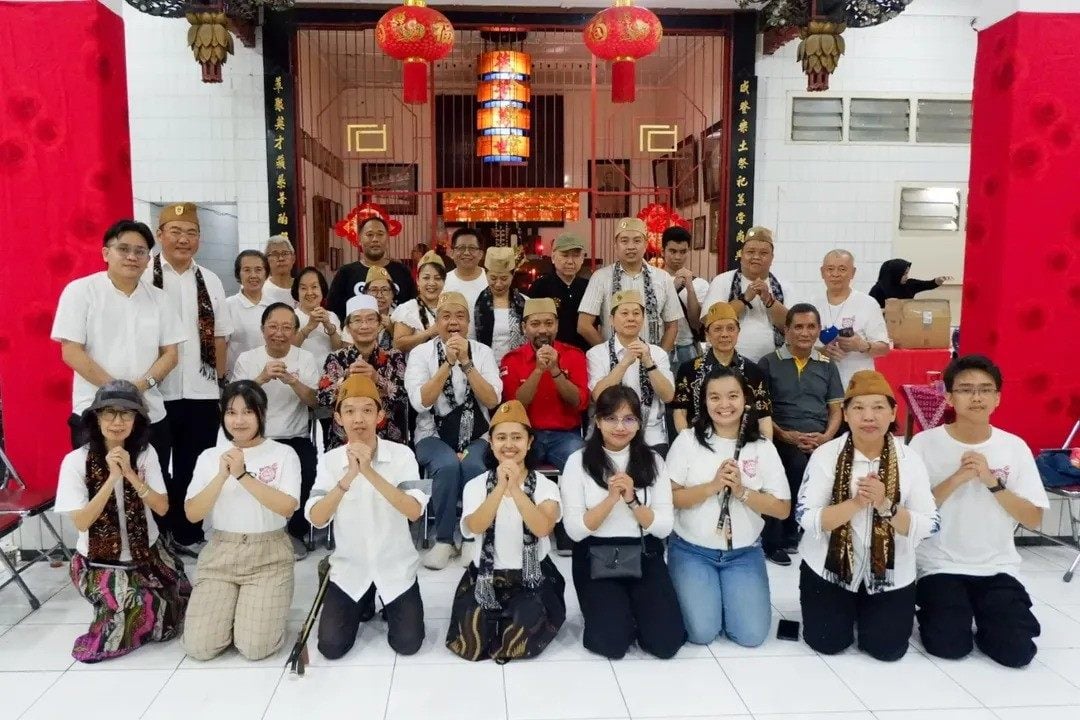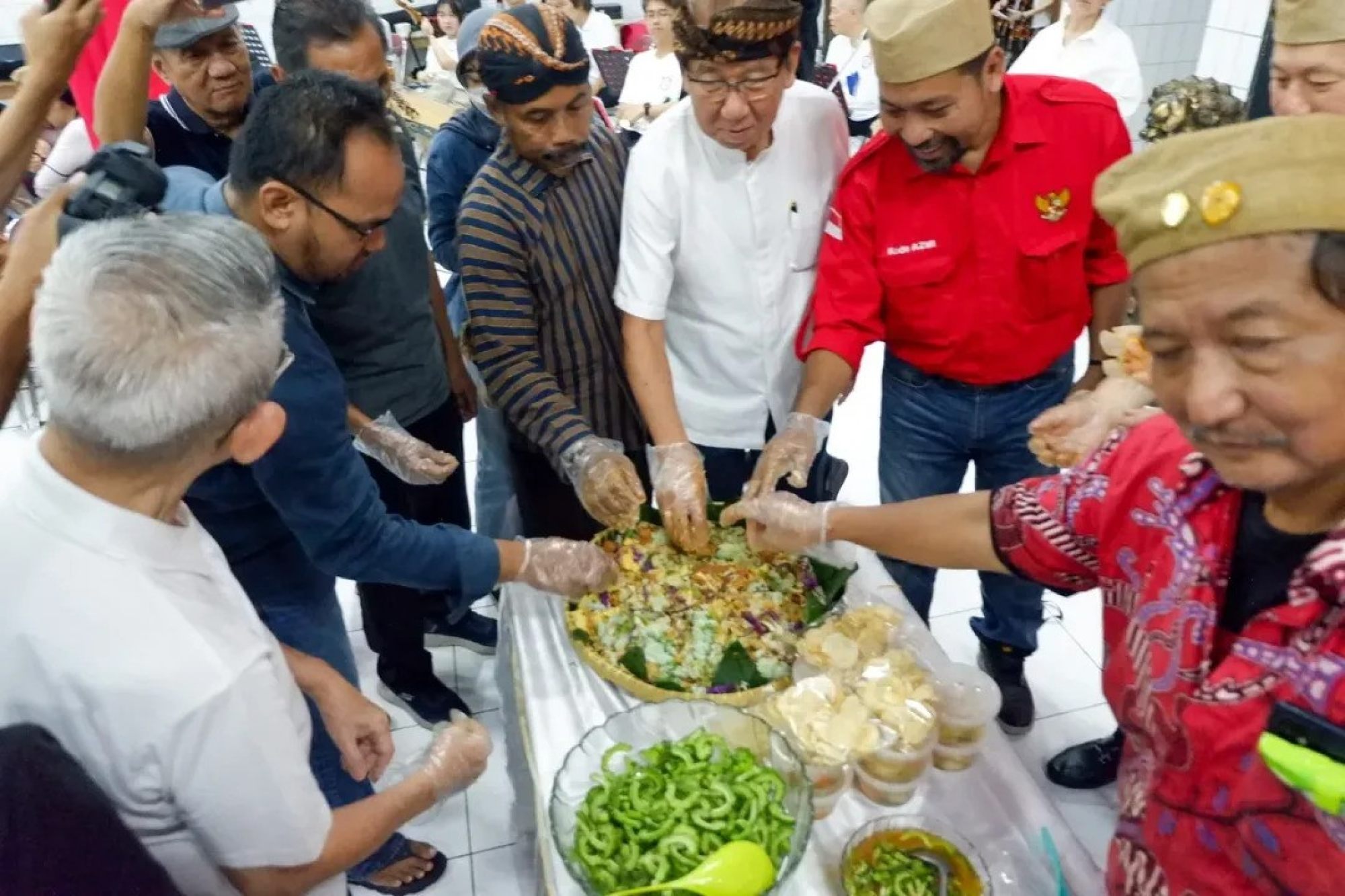‘Resist forgetting,’ say Chinese-Indonesians still seeking justice for mass rapes in 1998 riots
Community holds events to commemorate the tragedy and says official state acknowledgement of the violence will boost reconciliation efforts

Calls are growing for the Indonesian government to formally acknowledge the mass rapes of the country’s ethnic Chinese women during the May 1998 riots, as members of the minority community commemorate the tragedy with a vow to “resist forgetting” even as justice remains elusive.
The unrest that swept Indonesia 27 years ago was triggered by soaring food prices, economic collapse and mounting public anger at then president Suharto’s authoritarian rule. He stepped down on May 21, 1998, after weeks of student-led protests – but in the days before his resignation, Jakarta and other cities were engulfed by deadly riots targeting Chinese-Indonesians.
Mobs looted and burned Chinese-owned shops and homes, and numerous cases of sexual violence were reported. According to the Volunteer Team for Humanity, 130 rapes of Chinese-Indonesian women in Jakarta were documented between May 13 and 15 alone. The group reported the figure in July 1998 – but no perpetrators have ever been brought to justice.
The events remain a deep scar for Chinese-Indonesians. Eyewitness accounts gathered by the government’s Joint Fact-Finding Team at the time suggested the anti-Chinese violence was orchestrated by provocateurs linked to the military.
One of the most chilling episodes came months later. Ita Martadinata Haryono, a Chinese-Indonesian member of the Volunteer Team for Humanity, was found murdered in her bedroom in October 1998. Her killing occurred just days before she was due to testify before the US Congress about the sexual assaults and killings. The group claimed her death was an attempt to silence activists.
Today, the lack of justice still weighs heavily on survivors and their communities.

In Semarang, the provincial capital of Central Java, a community of Chinese-Indonesians named Boen Hian Tong last week commemorated the tragedy by eating a salad of bitter melon, topped with a spicy condiment of torch ginger sambal.
“In 2018, I was thinking about [how to commemorate] this bitterness. I think we should just eat bitter melon, to show that we have to swallow this bitterness, so we can move on. The kecombrang [torch ginger] sambal is a symbol of Chinese women who were persecuted, because to make sambal you have to pound the flower,” Harjanto Halim, chairman of Boen Hian Tong, told This Week in Asia.
“This is our cultural ritual to resist forgetting.”
Seeking acknowledgement
The commemoration, which took place on May 17, also saw the group wearing black ribbons on their wrists and putting tuberose flowers on the ancestral altar. Harjanto said the group also placed an ancestral tablet featuring the name of Ita Martadinata at the altar as a show of respect for the May 1998 victims.
According to Harjanto, while Semarang was relatively safe during the 1998 upheaval, many ethnic Chinese in the city know what happened during the riots, although that may change as time goes on.
“When I first bought the black fabric for my event, the elderly Chinese woman at the garment store in Chinatown asked me ‘what happened in May 1998?’” he said.
“If this cik asked me that, what about my child? What about my grandchild? This strengthens my [argument] that we need to do something to resist forgetting.”
He urged the Indonesian government to “acknowledge” the gang rapes against Chinese-Indonesian women, otherwise it “will be like gangrene in our body”.
In 2023, then president Joko Widodo acknowledged and said he “deeply regretted” 12 gross human rights violations in the past, including the killings of protesters and pro-democracy activists in 1998-99. However, he stopped short of admitting the racial and gender-based violence against Chinese-Indonesians in that period.
Harjanto said the absence of such recognition impeded reconciliation between the state and the Chinese-Indonesian community, despite improvement in interethnic relations.
“In the past regional elections, many of the House of Representatives candidates were Chinese, even though there was tension that occurred during the Ahok case,” Harjanto said, referring to Chinese-Indonesian politician Basuki Tjahaja Purnama, who was jailed for nearly two years on a blasphemy charge filed by a group of Islam fundamentalists in 2016.
“But we realise that, wherever it is, minorities will have a hard time [in their countries]. There are dynamics that must be accepted by us as minorities.”
Dutch legacy
Azmi Abubakar, founder of the Chinese Indonesian Literature Museum in Banten, said the 1998 tragedy was a “legacy” of the Dutch colonisers’ segregation policy, which classed Chinese descendants above native Indonesians.
“Although their class was different from the inlander [native Indonesians], the fate of the Chinese was the same as the inlander. The Dutch ignored their education and health,” said Azmi, a Muslim from Aceh.
“The Chinese also fought back against the Dutch in all things, including militarily. This was not well known by the inlander. They considered the Chinese part of colonialism.”
Suharto’s iron-fist New Order regime preserved the anti-Chinese sentiment.
“The New Order was very cruel to the Chinese. They destroyed everything Chinese. They disbanded all Chinese organisations. The Chinese press was banned. All Chinese schools were closed. Chinese-Indonesians had to change their [Chinese] names,” Azmi said.

The violence in 1998 was partly caused by “the negative narrative that the New Order built towards ethnic Chinese for 32 years that filled the minds of the public”, and the lack of information about the community, Azmi noted.
The tragedy prompted Azmi to establish his museum in 2011. Today, it hosts tens of thousands of books, magazines and other literary items written by, or speaking about, Chinese-Indonesians.
“I think that currently the public already has access to this information, so I don’t think the 1998 [tragedy] will happen again,” he said.
For Harjanto, Indonesia will be “a more mature nation” if it can admit guilt about its role in the 1998 violence against Chinese-Indonesians.
“A mature state would admit their mistakes. We hope this country will be like that, but I do not expect miracles,” he said.